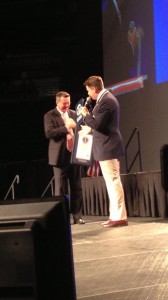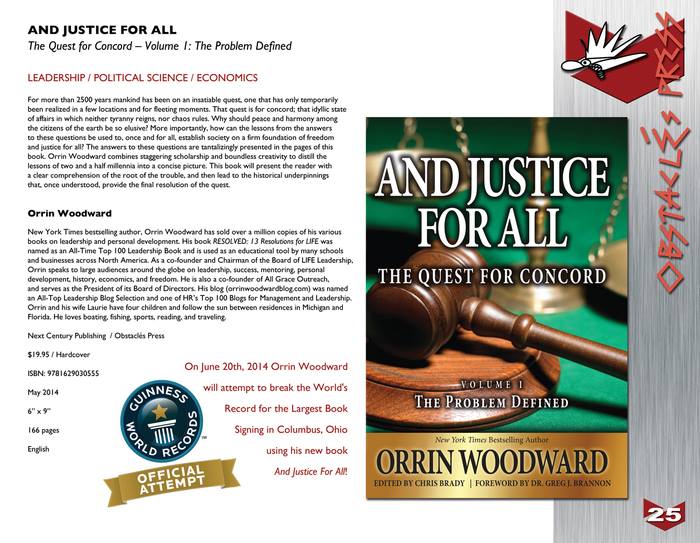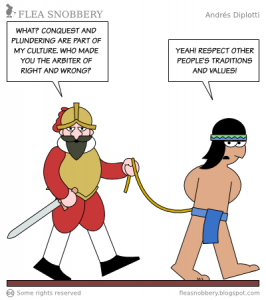Leaders must have posture (a mixture of self-respect and love for others) to build a following. For people will not respect a person who begs and pleads them to follow. Instead, people follow a leader who knows where he is going and invites them to come along while maintaining his self-respect, dignity, and direction. In short, you cannot lead those you need. LIFE Leadership is about building a leader’s self-respect so that he can serve others needs.
Posture is the recognition that life is a parade and that a person’s leadership is not for everyone. Therefore, maintain your self-respect, recognize that God will lead the right people to you, and work constantly on becoming a better leader for the right people better. I cannot emphasize enough the importance of posture. In fact, once a person has developed unquestioned character and work-ethic, posture becomes the one of the key differences between success and failure.
I love serving people but I have learned through many years experience that my effectiveness is directly related to the hunger and respect the student has for the information I share. For example, if a student does not respect the leader’s time then he does not respect his information either. Posture is recognizing the line between service to others and self-respect. Every great leader must have self-respect before he can expect others to respect him. Indeed, it’s only when this posture is set that a leader is capable of making a difference in others lives.
Perhaps the best description I ever read on posture came from Dr. James Dobson in his fantastic marriage book called What Wives Wish Their Husbands Knew About Women. I know it sounds crazy, but in the middle of seeking to be a better husband for Laurie, God directed me to one of the biggest breakthroughs in my personal leadership journey – Posture with People. Dr. Dobson was explaining his own posture journey with his future wife Shirley. I will let him explain the principle in his own words:
When we first met, she was a lowly sophomore in college and I was a lofty senior. I viewed myself as a big man on campus, and my relationship with this young coed mattered little to me. She, in turn, had been very successful with boys, and was greatly challenged by the independence I demonstrated. She wanted to win me primarily because she wasn’t sure that she could . . . but her enthusiasm inhibited my own interest in return.
After graduation, we had one of those lengthy conversations well known to lovers the world over, when I said I wanted her to date other fellows while I was in the Army, because I didn’t plan on getting married soon. I’ll never forget her reaction. I expected Shirley to cry and hold onto me. Instead, she said, “I’ve been thinking the same thoughts, and I would like to date other guys. Why don’t we just go our separate ways, for now.” Her answer rocked me. For the first time in our relationship, she was moving away from me. What I didn’t know was that Shirley stoically closed her front door and then cried all night.
I went to the Army and returned to a nearby school (USC) for my graduate training. By this time, Shirley was an exalted senior and I was a collegiate has-been. She was homecoming queen, senior class president, a member of Who’s Who in American Colleges and Universities, and one of the most popular girls in her class. As might be expected, she suddenly looked very attractive to me. I began to call several times a day, complain about who she was spending her time with, and try to find ways to please my dream girl. However, the moment Shirley saw my enthusiasm and anxiety, her affection began to die. Gone was the challenge which had attracted her two years before. Instead, I had become just another fellow pounding on her door and asking for favors.
One day after a particularly uninspiring date, I sat down at my desk and spent two solid hours thinking about what was happening. And during the course of that introspection, I realized the mistake I was making. A light flashed in my head and I grabbed a pen and wrote ten changes I was going to make in our relationship. First, I was determined to demonstrate self-respect and dignity, even if I lost the one I now loved so deeply. Secondly, I decided to convey this attitude every time I got the chance: “I am going somewhere in life, and I’m anxious to get there. I love you, and hope you choose to go with me. If you do, I’ll give myself to you and try to make you happy. However, if you choose not to make the journey with me, then I can’t force my will on you. The decision is yours, and I’ll accept it.”
. . . The first night when I applied the new formula was one of the most thrilling experiences of my life. The girl who is now my wife saw me starting to slip away on that evening, and she reacted with alarm. We were riding in silence in my car, and Shirley asked me to pull over to the curb and stop. When I did she put her arms around my neck and said, “I’m afraid I’m losing you and I don’t know why. Do you still love me?” I notice by the reflected light of the moon that she had tears in her eyes. She obviously didn’t hear my thumping heart as I made my little speech about my solitary journey in life. You see, I had reestablished the challenge for Shirley, and she responded beautifully.
The psychological force which produced our see-saw relationship is an important one, since it is almost universal in human nature. . . we crave that which we cannot attain, but disrespect that which we can’t escape. The axiom is particularly relevant in romantic matters, and has probably influenced your love life, too. Now the forgotten part is that marriage does not erase or change it. Whenever one marriage partner grovels in his own disrespect . . . when he reveals his fear of rejection by his mate . . . when he begs and pleads for a handout . . . he often faces a bewildering attitude of disdain from the one he needs and loves.
Just as in the premarital relationship, nothing douses more water on a romantic flame than for one partner to fling himself emotionally on the other, accepting disrespect in stride. He says in effect, “No matter how badly you treat me, I’ll still be here at your feet, because I can’t survive without you.” That is the best way I know to kill a beautiful friendship.
So what am I recommending . . . that husbands and wives scratch and claw each other to show their independence? No! That they play a sneaky cat and mouse game to recreate a “challenge”? Not at all! I am merely suggesting that self-respect and dignity be maintained in the relationship.
How can you improve your leadership posture? Please share your thoughts.
Sincerely,










 If a person can eat without working, rest assured many people will follow Gresham’s Law and choose the same path.
If a person can eat without working, rest assured many people will follow Gresham’s Law and choose the same path.







